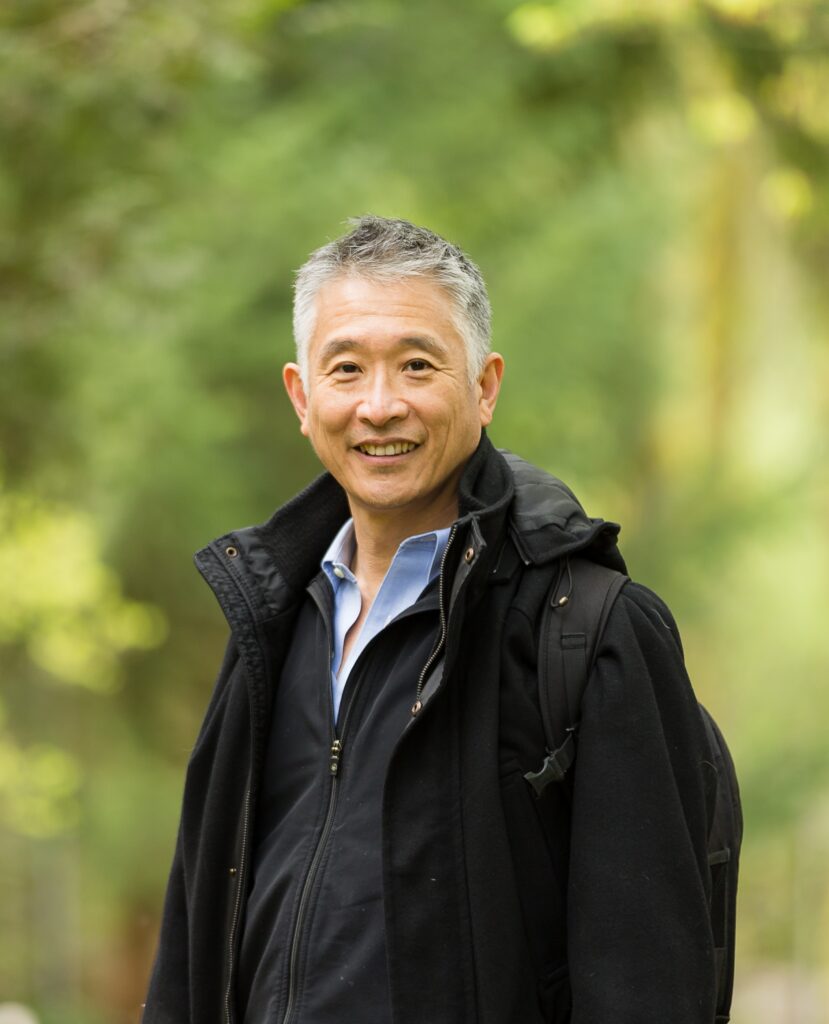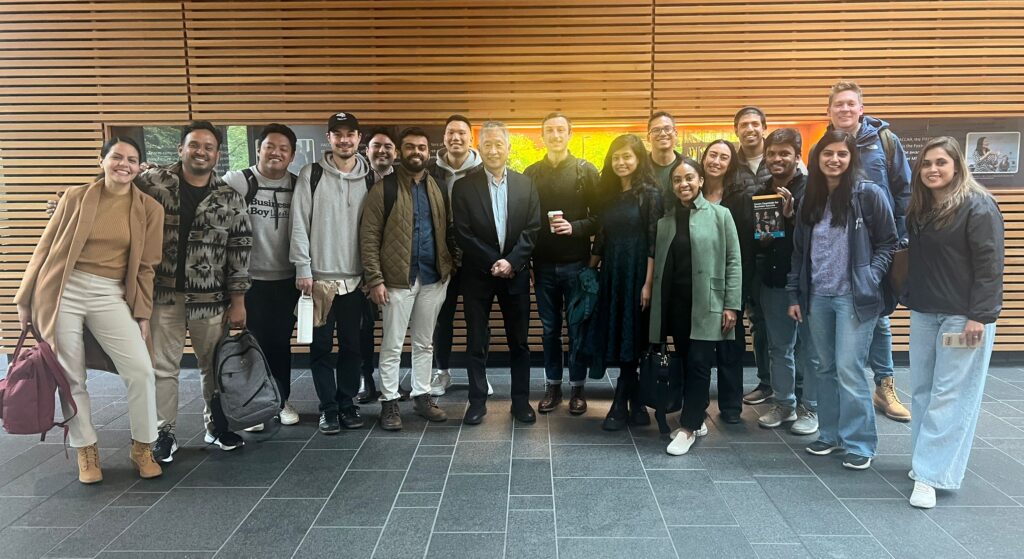Foster Accounting Faculty Spotlight – Charles M. C. Lee
Get to know Charles M.C. Lee, Kermit O. Hanson Professor in Accounting at the University of Washington’s Foster School of Business, who teaches the elective course titled Alphanomics.

Please tell us a bit about your background.
I was born in Taiwan, and immigrated to Canada with my family at the age of nine. I grew up in Southern Ontario and attended the University of Waterloo as an undergrad, receiving a Bachelor of Mathematics degree with an Accounting major. After a stint in public accounting, I came to the U.S. and completed my MBA and PhD at the Johnson School of Management, Cornell University.
Half of my academic career has been on the East Coast (13 years as a business school professor at Michigan and Cornell) and half on the West Coast (13 years as a professor at Stanford). In between, from 2004 to 2009, I spent five years in asset management (as a Managing Director at Barclays Global Investors, BGI; now Blackrock). Named BGI’s Global Head of Active Equity Research in 2006, I spearheaded the research team at BGI and co-managed what was then the largest pool of actively-managed equity assets in the world – over 350 billion USD. Finding that I missed campus life, I eventually returned to academia in 2009, joining the Stanford GSB as a Chaired professor.
My research interests are at the confluence of accounting and finance. On the accounting side, I have studied how to measure the worth of companies (equity valuation and fundamental analysis) and whether market prices efficiently reflect accounting information. On the finance side, I have studied how human cognitive constraints and other behavioral factors impact markets. I also have an abiding interest in how market regulations affect market performance, particularly in developing countries. My interest in emerging markets led me to co-found Nipun Capital, a California-based hedge fund that now has a 12-year track record.
In 2019, my wife and I took a sabbatical leave from Stanford and spent the Spring quarter at the Foster school. In that misty Spring quarter, we fell in love with both the beauty of the Pacific Northwest and the warmth of the academic community at this school. After the visit, we began to plan an early retirement from Stanford and a move to Seattle. In January 2022, I formally assumed my current appointment as the Hanson Professor of Accounting at Foster.

What motivates your scholarly pursuits?
“Play is not a break from work, but rather the way we accomplish our best work.” – Stuart Brown
I view myself as a scholar, and in my mind the chief end of a scholar is to seek Truth. The main goal of a scholar is to understand the world as it REALLY IS; not as make-believe (what we want it to be) or as a pipedream (what we wish it could be). The scholar is engaged in a lifelong process of learning more about the world as it really is.
This scholarly pursuit involves two types of endeavors: research (the discovery of truth) and teaching (the sharing of truth). Over the years, I have come to love both. I derive genuine enjoyment from conducting original research and from teaching others about what I am learning. And increasingly, I find that the line between my work and my play has become blurred. Quite literally, I would do what I do in this job even if I were not paid to do it. I get to teach what I love; and I get to love those to whom I teach it. It is a pretty good gig.
In 2021, George Siedel, Emeritus Professor of Business Administration and Business Law at the University of Michigan, published a book titled “Seven Essentials for Business Success: Lessons from Legendary Professors” (see link in Google Books and on Amazon). This book featured seven “legendary” professors from seven top business schools, each covering one of the seven major areas of business education. I was chosen to represent the Stanford GSB and the business discipline of Accounting. What I like most about this book is how the author allowed each of us to candidly discuss our successes and failures, as well as who/what inspired us to do what we do in the classroom.
The title of Chapter 3 in this book is “Stanford Accounting Professor Charles Lee: Making Sound Investment Decisions While Searching for Truth in Your Personal Life” (follow the TOC in this link to read a sample of each chapter). I think this title aptly summarizes my approach to teaching and to life. I am a happy Truth seeker, who has had the remarkable good fortune of being allowed to share this journey with my students, friends, and family.
What are some of the endeavors you engage in beyond your work?
When not teaching or doing research, I love spending time with my wife, Lily. We are active members of a local Chinese church, and we both serve as counselors to a group of graduate students on campus. We also enjoy wandering the hiking trails around Seattle and finding new waterfalls, lakes, and streams. Since the birth of our grandson this January, we have added a new obsession: Facetime with Pax; and, of course, shuttling back and forth between Seattle and San Francisco to see our children.
It is impossible to spend much time with me without discovering my other passion: fly fishing. Most fly fishers have a hard time explaining why they enjoy standing waist deep in icy water waving a stick and hoping to fool a tiny quarry like a 9-inch trout. What’s more, these fly fishers almost always let the fish go after catching it. Frankly, I don’t understand it either. All I know is that I love seeing a trout sipping a fly from the surface of a clear mountain stream. There is something mystical, bordering on magical, about the experience. Not surprisingly, students in my class receive generous helpings of fly-fishing lore along with their accounting and finance.

Please tell us about the elective course Alphanomics that you teach at Foster.
Here at Foster, my main teaching responsibility is an elective class the MBAs call “Alphanomics” (ACCTG 579). The “Alpha” part of the name refers to abnormal risk-adjusted returns relative to a market benchmark. The “nomics” part of the name refers to the economic or informational underpinnings of how markets become more-or-less informationally efficient over time.
Formally, this course is described as “A Primer on Active Investing in Equity markets.” The main goals of the class are to help develop students’ ability to: (1) assess the value and worth of individual firms, (2) identify attractive investment opportunities with quantitative stock screens, and (3) manage a portfolio of publicly traded stocks.
Successful completion of the course will give students a set of fundamental skills that are essential to active investing in equity markets. Specific topics covered include: strategic ratio analysis, cash flow analysis, equity valuation models, earnings quality evaluation, fraud detection, quantitative stock selection, short-selling, trading fundamentals, portfolio construction, and risk management.
The course is designed for students with an interest in public investing, either personal or professional. It should be particularly helpful to those with career aspirations in asset management, equity research, private equity, and financial consulting. Prior investing experience or a class in Financial Statement Analysis (e.g., ACCTG510) would be helpful. However, the course is designed to be accessible to anyone who has completed the equivalent of the core MBA-level training in economics, accounting, and finance. In fact, highly motivated “newbie” investors are especially welcomed!
A word of caution is that this course is not suitable for students who cannot put in the perquisite hours each week. This is a hands-on course with an emphasis on experiential learning. In other words, learning occurs by doing assignments. Students use a variety of analytical tools to evaluate individual companies, design stock screens, conduct back-tests, assess portfolio performance, and monitor portfolio risk. Much of this content is quantitative in nature and students can expect a moderate to heavy workload. I understand that as the weather improves in Spring, students’ opportunity costs go up. So students signing up for the class should understand from the outset that there are definitely easier ways to earn four course credits.

Charles Lee with Alphanomics students
How is your research aligned with your course curriculum?
My research is closely aligned with my teaching interests, and students taking my Alphanomics class are exposed to a lot of academic studies. This is because academic research has had a profound influence on professional equity investing, particularly quantitative investing. In fact, most of the investment ideas that drive return prediction in stock markets can find their roots in academic research.
Students who are interested in keeping up with this research can check out the list of Select Publications at my Faculty Profile link. Or, for a deeper dive, you can find a complete listing of my published work, as well as current working papers, in my updated CV.
How has your Foster journey been so far?
As a relative newcomer to Foster, I already possess a growing collection of mental clippings from my experiences with Full-timeT and Evening MBAs. Overall, I find the Foster MBA students engaging, polite, and exceptionally bright. On balance, fewer students at Foster are going into asset management than was true at Stanford. However, I find my students here highly motivated and eager to learn. They have been a delight to teach.
I also enjoy meeting up with students outside of class (in fact, I started hosting small groups for lunch/dinner this past Spring, and over the course of the quarter I managed to share a meal with more than half the students in my class). Over these meals, we can discuss a much wider range of interests and life goals. I count these among the most valuable/enjoyable times I have spent at the school.
The Foster school community has embraced me in other ways. For example, I have participated as a judge for various student competitions. I have sponsored independent studies for a number of students. I have participated in the MBA Challenge for Charity (C4C) auction as a successful bidder. I have also supplied and successfully auctioned off a two-day guided fly-fishing trip with me and a professional guide.
Two aspects of the Foster mission statement particularly resonate with me. The first is community – the fact that we do things together, and that greater things can be had together than alone. I sensed this during our sabbatical visit in 2019, and it is one of the main draws for me in coming here. The second is service – that we are part of a greater cause, to serve and to benefit humanity.
I am early into this adventure at Foster and I cannot wait to see the rest of it unfold!
